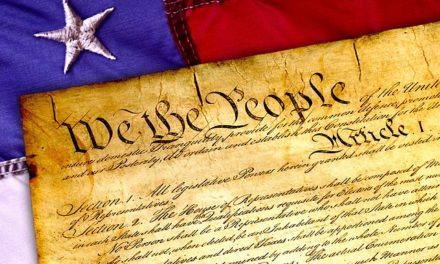An Open Letter to Members of the Utah Legislature:
Historically, most of the resolutions seeking a constitution convention (by whatever name the advocates choose to denominate it) which have come before the Utah Legislature have promoted the idea that they were single issue proposals, and that any convention which may be called as a result of these resolutions would be restricted to addressing that single issue, and therefore would not place broader issues in the Constitution at risk. While this is a debatable supposition in those other resolutions, HJR3 has dropped all pretense that the proposed convention will be of limited scope. With HJR3 we need no longer pretend that the convention which would be called as a result of this resolution cannot create an entirely new constitution.
Consequently, HJR3 must be considered as the most dangerous resolution of its type which has ever come before the Utah Legislature. HJR3 is multi-pronged in its thrust to call a convention. It purports to “impose fiscal restraints on the federal government,” to “limit the power and jurisdiction of the federal government,” and “limit the terms of office for its officials and for members of Congress.” It uses these innocuous-sounding euphemisms to inculcate benign impressions of the expansive swaths which may be cut through the United States Constitution if a convention for these purposes is called. While space constraints in this abbreviated synopsis prohibit a full exposition of the possible expansive fundamental changes in the Constitution these stated intentions could make if carried to their logical potential ends, each of these purposes is addressed briefly, below:
1. Fiscal Restraints: We must infer that this means a Balanced Budget Amendment. Over the past several years I have diligently sought to obtain and study every proposed Balanced Budget Amendment which has been suggested. ALL of these proposed amendments are fatally flawed. Each of them have easily obtained loopholes which would allow deficit spending to continue unabated for various supposedly important reasons, many even propose simple means by which prohibitions against deficit spending could be suspended for undefined reasons. Some tie spending to some percentage of Gross Domestic Product (GDP). While the current plain English words of the United States Constitution limit spending for the few and defined purposes enumerated in the Constitution, all of the proposed Balanced Budget Amendments allow spending for any purpose if money is available. This constitutional modification could conceivably fundamentally change the national government from one with few and defined powers to one with general undefined, unspecified powers, thereby “constitutionalizing” practices which currently occur unconstitutionally. The current Constitution allows spending in fulfilment of delegated powers, and has nothing to do with money available, or GDP.
2. Limit the Federal Government’s Power: In its total, the United States Constitution is by definition a delegation of power to the national government. In its entirety it defines the national government’s power to act. To pass a resolution that would bring about a constitution convention for the purposes of “. . . limiting the power and jurisdiction of the federal government . . .” (as HJR3 proposes) inherently grants the proposed convention the authority to re-write and re-define the entire United States Constitution. Honestly ask yourself: “What element within the Constitution would reasonably be exempted from such an open-ended assumption of power?” It literally encompasses the entire concept of a constitution. If the Convention of 1787 could consider themselves as operating within their congressional charter to “revise” the then existing constitution, the Articles of Confederation, by setting aside that constitution and creating an entirely new one, with a new process of ratification, to what lengths could a modern convention with such a charge go? We do not really, absolutely know, but is that immense possibility worth the risk? Who today, of all the possible delegates who might be appointed to attend the proposed convention would you choose to trust with this potential power? None that I know!
The adherents of this resolution assiduously avoid ANY attempts to more carefully limit or constrain the open-ended nature of this proposal. They note that more specificity to the limits of power granted within this resolution are impossible because tying it down too tightly would prevent other state legislatures from being so bold as to bring forth a call for a convention that might be counted with this one to meet the 2/3's Constitutional requirement for congress to convene a convention if it did not meet their view of what ought to be addressed in the convention. That sounds like it would be possible for other states to send their delegates to any convention which was called under these pretenses to come with the intention of modifying the Constitution in a manner that would make changes destructive of the limits and bounds currently embodied in our existing Constitution. And if they could obtain the approval of a majority of the delegates, and later the concurrence and ratification of the states, we could be bereft of some great and valuable aspect of our liberty. What such a proposal might be is open for supposition, but such a risk certainly exists!
3. Term Limits: We currently have “term limits.” We are blessed with the opportunity to periodically choose our representatives based upon the election intervals defined within the United States Constitution. We the people decide at every opportunity. Would we deny the people the right to choose their leaders? Who in their right mind would term limit out a representative who keeps his or her actions within the constraints of the Constitution and proper limited government? Who would term limit out a James Madison? The original U.S. Constitution, the Articles of Confederation, had term limits (see previous Article V in Articles of Confederation). The authors of the 1787 Constitution had that knowledge, but yet they decided to not incorporate term limits in the new constitution they created. They had found faults with term limits. Sometimes they were term limiting out their natural leaders that they wanted in office. Sometimes they found that they lost influence over representatives during their last allowed term. In other words, they suffered through “lame ducks” while the representatives served out their final term. Consider how we, today, fret though congressional “lame duck” sessions in the two month period between the November election and the seating in January of the new representatives. Suppose senators were limited to two six year terms. Their entire second term of six years they would be a “lame duck” and prone to all sorts of egregious behavior as they pleased those whom they hoped to curry favor with, and feathered their future without worry about displeasing their electorate. See Luke 16:1-7 for an example of how a “lame duck” unfaithful servant wrought further injustice on his master while he finished up his term of office.
In his magnificent “Farewell Address” George Washington advised the Constitution be changed if it were found to be WRONG. The American Founders NEVER suggested that the Constitution be changed if it were being VIOLATED. There is nothing wrong with the United States Constitution! The problem is that the nation has stopped faithfully applying it. Those who claim to love the Constitution and promote changing it are inconsistent. If they love it they MUST abide by it. Changing the Constitution does not honor it! ALL who hold office take an oath to the United States Constitution. Those who hold office (and will likely sit in the seats of any convention which might be called) are oath-bound to uphold the Constitution. Their actions in violation of the Constitution have led to the difficulties under which the nation currently suffers. All of the challenges currently facing the nation are attributable to violations of the plain English words of the Constitution, and their original application. Those who hold office ignore their oath, violate the Constitution at will, and are to be trusted to correct the resulting problems in a convention that could possibly eviscerate the Constitution of the limits and bounds which are already inherent in the document??!! We are delusional if we think they will improve upon what already exists. The officers who violate the Charter of the Nation now will continue to violate it, even if modified.
We do not need to “correct” the Constitution. We and our officials must abide by it.
The risks to our wonderful Constitution which are inherent in HJR3 are so immense as to be beyond calculation. Please soundly defeat HJR3, and every other effort to modify our magnificent Constitution. Seek to apply the other, less dangerous constitutional methods to restore this nation to the exercise of the limited, enumerated powers with checks and balances which are enunciated so clearly in the United States Constitution and its magnificent Bill of Rights. Let us vigorously seek a restoration, not change. Thank you!
—Scott N. Bradley
North Logan, Utah
liberty1787@comcast.net




